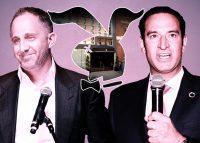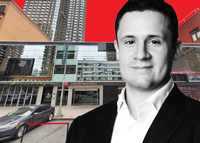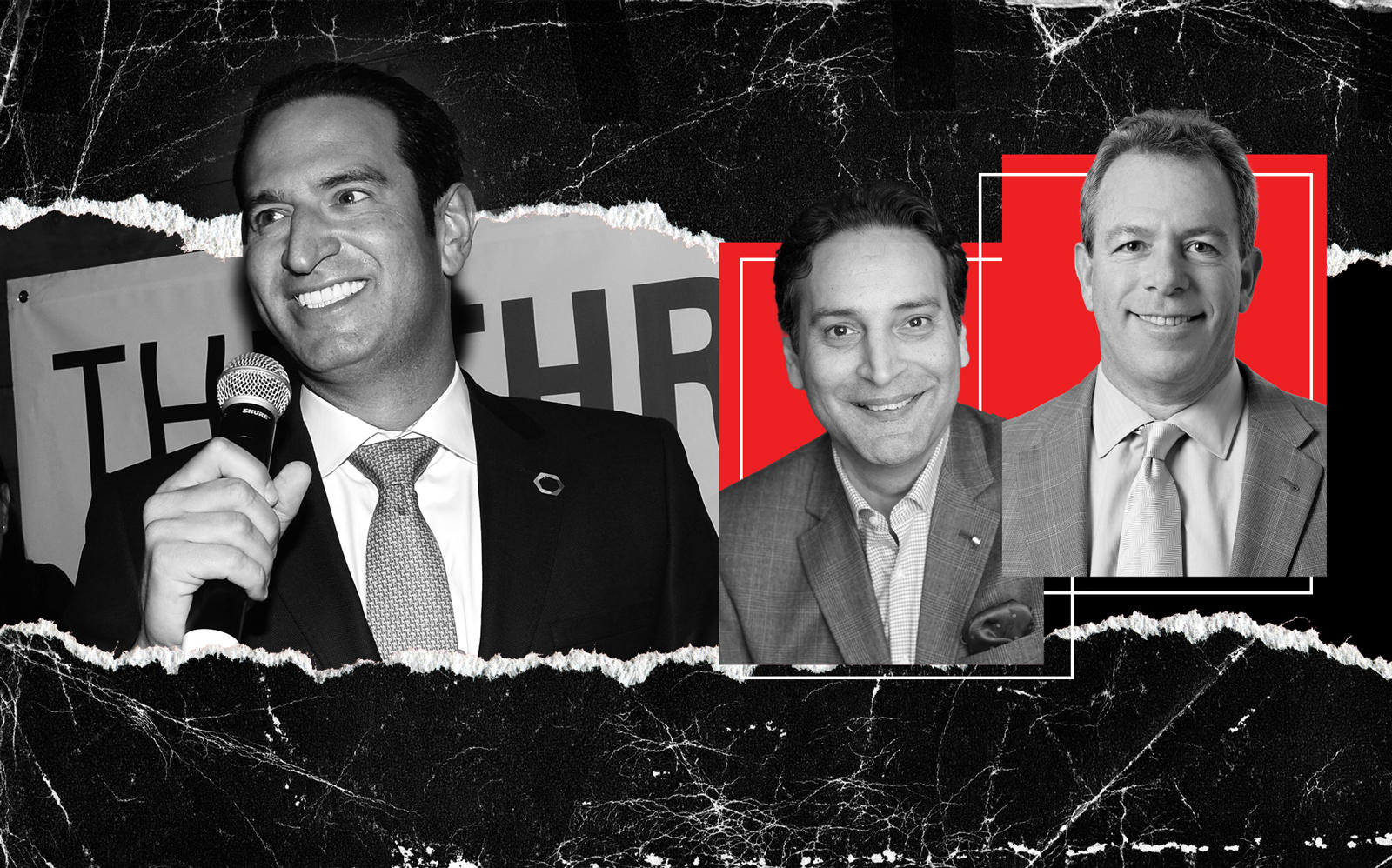Editor’s note: After publication of this story, a court filing Monday reported that the litigation it describes was discontinued. The lawsuit was then refiled Tuesday.
UPDATED Oct. 6, 2020, 1:12 p.m.: Merchants Hospitality has filed an explosive lawsuit against former partner Adam Hochfelder, accusing him of running a Ponzi scheme, embezzling investor money and retaliating against his former associates after he was fired in June.
In a complaint filed in New York State Supreme Court last week, Merchants claims it went out on a limb to help Hochfelder get back on his feet after a two-year prison stint, only to catch him stealing from the firm and using its name and assets to defraud unsuspecting investors and partners. He did so, in part, to pay back victims of other schemes, according to Merchants.
Hochfelder went to prison in 2010 after pleading guilty to 15 counts of grand larceny and three counts of scheming to defraud his uncle, in-laws and other investors out of more than $18 million. He left prison and was hired by Merchants in 2012.
Now, eight years later, Merchants accuses Hochfelder of embezzling funds from its West 42nd Street hotel project — the site of a failed effort to run a high-priced Playboy Club in New York — and using his affiliation with the firm to run a $400,000 Ponzi scheme through his company email.
Merchants also alleges that Hochfelder had been “deceptively masquerading” as a company executive, even after it severed ties with Hochfelder this summer, and claims he “maliciously” retaliated by directing one of its equity partners, Robert Roche, to withhold a $4 million payment due in July.
Furthermore, Merchants claims Hochfelder still has “multi-million-dollar debts” owed to the firm and is seeking repayment in separate actions, according to its suit.
In a phone interview, Hochfelder called the accusations of embezzlement and fraud “categorically not true.” He said the alleged Ponzi scheme was a “fictitious” plot and accused Merchants of fabricating the scheme by breaking into his computer and creating false documents.
Hochfelder said the suit stems from his refusal to pay off debts on defaulted leases at several of Merchants’ restaurants where he was the guarantor. But he acknowledged telling Roche to withhold a $4 million payment to the firm until the dispute with Merchants’ principals, Abraham Merchant and Richard Cohn, is resolved.
“We were concerned that Roche would pay the $4 million and then Richard would use it to pay landlords he defaulted on with restaurant leases,” Hochfelder said. “That and me not paying their defaulted leases is the reason they brought all of this on.”
Roche, who runs the Asia-based hotel management company Cachet Hotels & Resorts, did not respond to requests for comment.
Read more


Merchants’ complaint represents a significant break between Hochfelder and the firm’s principals, who have been two of the controversial developer’s biggest advocates in recent years. Merchants brought Hochfelder on board during his prison stint to spearhead acquisitions and development for the firm.
In 2014, Merchant, the firm’s CEO, called hiring Hochfelder “one of the best decisions we ever made.” And in 2017, after allegations of sexual harassment against Hochfelder surfaced, Cohn defended Hochfelder, saying, “It’s easy for him to be a pinata because of his past. But I think everybody deserves a second chance.” (The lawsuit containing the harassment allegations was ultimately dismissed and the claims went no further.)
Even last year — amid the Playboy Club closing and Hochfelder pleading guilty to new counts of fraud — Merchant and Cohn remained steadfastly supportive of their troubled partner.
“Abraham and I are extremely close with Adam personally and professionally,” Cohn wrote in a letter dated June 2019, as part of a series of correspondence sent to TRD during a months-long investigation into the Playboy Club and Hochfelder’s controversial role in its demise.
Now, Merchant and Cohn appear to have changed their position, claiming they hired Hochfelder in 2012 as a favor to his uncle, Thomas, and helped Hochfelder rent an apartment in Midtown East and a car in the company’s name, though Hochfelder was expected to make all payments. They also gave Hochfelder a one-third equity stake in several of Merchants’ ventures, including restaurants and hotels, on the condition that he had no legal authority to manage any of the businesses or sign documents on behalf of them, according to the complaint.
But in early 2017, the partners say they discovered Hochfelder had skimmed $725,000 off a $5 million deal that had closed while they were away on vacation. The funds had been meant for the acquisition of the West 42nd Street hotel. Hochfelder allegedly pulled off the heist by copying and pasting a digital version of Abraham Merchant’s signature onto a single-party escrow agreement.
Merchants claims it conducted an investigation into the embezzlement that spring and Hochfelder ultimately admitted to the scheme and begged his partners to let him repay the money, citing “his own psychological issues and problems with drugs,” according to the September lawsuit. The firm also alleges that Hochfelder had used the stolen funds to pay for a year’s worth of rent and reimburse his “new victims.”
“It became apparent that Hochfelder had defrauded new victims since his release from prison,” the complaint states. “[He] needed the embezzled funds to repay them to avoid further legal problems.”
It’s unclear whether Merchants alerted authorities about Hochfelder’s schemes in 2017. A lawyer representing Merchants did not respond to requests for comment. Hochfelder denied Merchants’ account of the incident and said the firm’s charges of his alleged drug use and psychological issues are “complete nonsense.”
Cohn and Merchant claim they decided to treat the $725,000 as a loan Hochfelder would repay and came up with a series of conditions upon which he could continue to work with Merchants. Those conditions included drug tests, therapy sessions, and a new arm’s-length employment contract that limited Hochfelder’s role in Merchants’ ventures, according to the complaint.
Despite these alleged measures, Hochfelder continued to play a key role in the Playboy Club at West 42nd Street. The club shuttered last year after Playboy Enterprises pulled its trademark citing a breach of contract, while multiple project partners and lawsuits placed the blame on Hochfelder.
At the same time, the Manhattan district attorney’s office charged Hochfelder with three new fraud counts in March 2019. Hochfelder pleaded guilty to a misdemeanor and was sentenced to a one-year conditional discharge. The DA’s office did not respond to a request for comment.
It wasn’t until this spring that Merchants claims it uncovered the Ponzi scheme Hochfelder had allegedly been running through his company email.
In the complaint, Merchants says it became aware of the alleged scheme in March when the firm was contacted by an investor demanding the repayment of a $355,000 promissory note, citing Hochfelder as the point of contact. In response, Merchants claims it suspended Hochfelder and barred him from their offices to further investigate.
In Hochfelder’s company email, the firm claims it found six instances where he elicited money from parties including a broker, a building owner and others for fake investments.
In one alleged scheme, Hochfelder collected $125,000 for an investment in the Bryant Park Hotel, which Merchants does not own. The complaint also alleges that Hochfelder offered an interest in Merchants’ Z Hotel in Long Island City but had the investor wire $75,000 to an LLC owned by his wife.
On top of those accusations and the alleged $4 million payment withheld by Roche, Merchants says Hochfelder has left the firm with months of overdue car payments, traffic violations and an ongoing eviction proceeding at his Midtown apartment.
Merchants ended its contract with Hochfelder on June 12, according to the complaint.
Hochfelder said he left the company in January and has since stopped using Merchants’ name “anywhere.” He also claims he did not use the car or live in the apartment leased by the firm.
Merchant said in an email to TRD on Monday morning that his firm plans to withdraw its claims and discontinue the lawsuit. He did not respond to questions about his reasons.
Correction: The uncle that introduced Merchants to Adam Hochfelder was incorrectly identified in an earlier version of this article as Peter Hochfelder. It was in fact Thomas Hochfelder.
